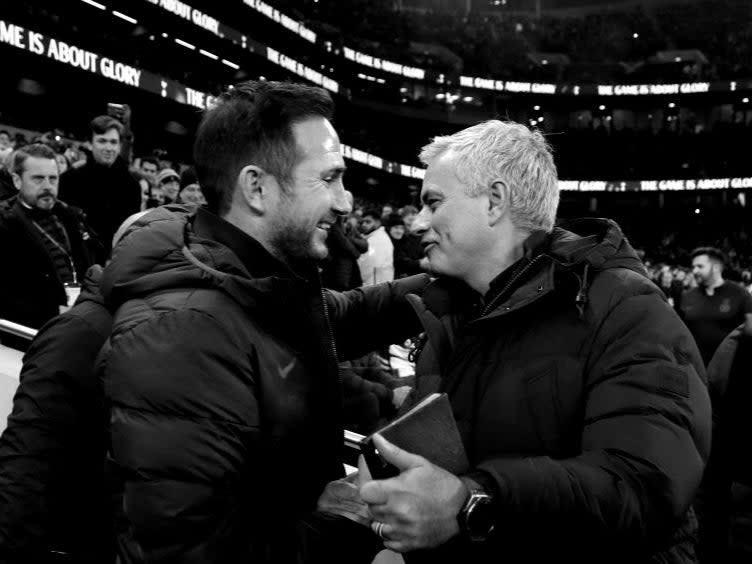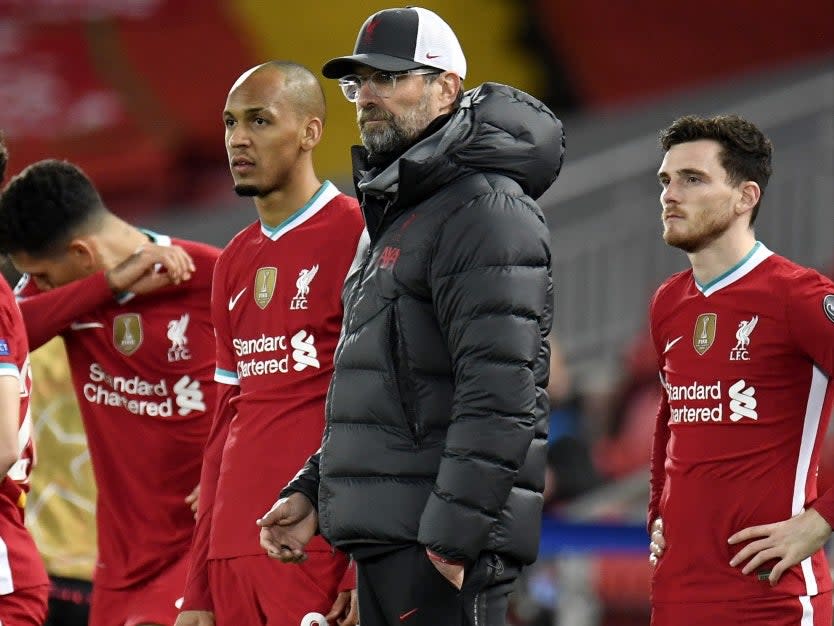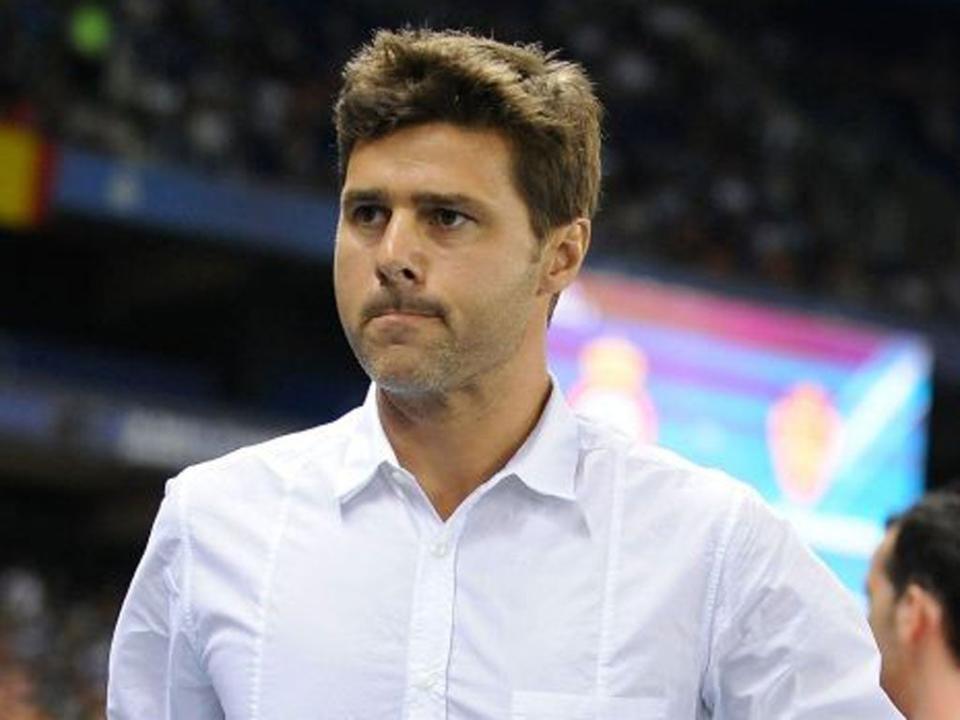Frank Lampard, Jose Mourinho and why the transformative power of the manager has never been higher

When Frank Lampard was making his first phonecalls to signings like Kai Havertz and Timo Werner this summer, there was a tone he wanted to strike. It was influenced by a lasting impression made by the man he will face this weekend.
Back in the summer of 2004, Lampard felt “transformed” by his first meeting with Jose Mourinho. He knew there was just something different about the new Chelsea manager. Lampard believed Mourinho had “an intuitive understanding of the way people work, of their dreams and desires, and how to harness that energy and convert it into a winning formula”.
The current Chelsea manager has wanted to convey a similar impression - that this can be a transformative experience for any player. And a victorious one. Play with us and you’ll go to this next level.
READ MORE: How modern football became broken beyond repair
This is the great promise, and great expectation, of every managerial appointment. It is especially expected in England, a football culture that probably believes in the transformative power of managers more than any other.
The meeting between Chelsea and Tottenham Hotspur this Sunday is a game that feels particularly tied up in this, and not just because of the shared history of Lampard and Mourinho. There are also their presents, and potential futures.
Lampard is a manager at the beginning of his career, who has suddenly been gifted the best squad in Europe. The wonder is whether he can accentuate their talents, for that first great career success.
Mourinho is a manager deemed as being past his peak, looking to lift a club that has always worked within certain limits - not least psychological. The wonder is whether he can lift them to silverware, for one of the game’s great managerial comebacks.

Jose Mourinho faces his former player Frank Lampard again on Sunday
GettyThen we’d really be talking about transformations.
The game’s general discourse can sometimes make it feel as if we aren’t so much watching football matches as 4D chess matches between the managers. An awful lot of stock is afforded to the men in charge.
That does raise the more interesting - and instructive - question of what the actual effect of managers is in the modern game. What can they actually do? How far can they go?
The quote that’s usually referenced is Giovanni Trapattoni’s, that “a good manager can make a team 10 per cent better, a manager can make that same team 30 per cent worse”. That touchstone tome of football research, Soccernomics, meanwhile calculated that the figure is 8 per cent - but argued that’s actually quite pronounced.
These estimations were from two or three decades, respectively, and other figures have changed considerably in the game since then.
Most of all, there has been the total transformation in the game’s financial landscape.

Klopp initially used simple instructions to transform the Reds
EPAIt has never had such financial disparity, and thereby never had so many glass ceilings. Clubs are more fixed in place than ever before.
There is much less mobility, especially the closer you get to the top end. A club’s budget basically dictates what a manager’s starting platform is, and what he will yield without doing much at all.
This can be seen in that fundamental of performance itself: points hauls.
Even the seasons since the last major historical juncture in the English game - the 2013 retirement of Sir Alex Ferguson - show a lot.

Pochettino emphasised passing when he arrived at Spurs
GettyFor all the problems Manchester United have endured in that time, they have never dropped to 64 points. They’ve actually been pretty consistent in that regard, achieving 66 points three times in the six seasons since, including last season.
This indicates that just over 60 points is their guaranteed return every season. It is the bare minimum they should expect to get. At Manchester City, given all of their wealth, it’s been 66 points. Liverpool has been 62 points; Spurs 59; Arsenal 56. Chelsea would be 66 - which was last season under Lampard - bar the aberration that the 2015-16 represented. Mourinho suffered such an unprecedented collapse that campaign that the team fell below their base level. It is extremely rare for a reason.
Selected clubs’ lowest points hauls since Sir Alex Ferguson’s retirement*
Manchester City 66
Manchester United 64
Liverpool 60
Tottenham Hotspur 59
Wolves 57
Arsenal 56
Chelsea 50
Everton 47
Leicester City 41
Burnley 40
West Ham United 39
Newcastle United 37
Southampton 36
Brighton 36
“At the top clubs, you’ve really got too much individual quality to spiral out of control in the way we would have seen in the past,” one Premier League manager privately confides. “Look at Man United. They just go and buy Bruno Fernandes for £70m and he bails them out so often. And if it’s not Bruno, it’s Marcus Rashford or Mason Greenwood.”
“It’s like that across the top clubs, and why the big six have been fairly constant.”
Player quality - and what you can afford - thereby dictates the basic level of the game, and is its fundamental.
Where it gets really interesting, and where managers really show their transformative power, is in the ceilings; the levels the teams and games can go to.
There is a spectrum of views on this among managers themselves.
Steve Bruce is part of an old-fashioned school who believe that, eight times out of 10, the team with the better players will win. One such Premier League manager literally told one coach,“I don’t have time to develop players”.
The problem with this is that it assumes players have an objective quality that never changes. So much of the modern game disproves this, not least its evolutions in tactics and sports science.
Managerial systems are now of such a depth that certain players can look completely different from one to the next. The best recent examples of this are Victor Moses and Marcos Alonso as wing-backs for Antonio Conte, or any number of Liverpool players, from the evergreen and ever-evolving James Milner to Jordan Henderson.
Coaches like Jurgen Klopp and Mauricio Pochettino naturally stand at the other end of the spectrum. They see a fundamental of their job as to bring the capacity of their players to its maximum. This can be done through little insights, coaching, tactics or just psychological motivation.
Many at Spurs say that one of the biggest changes Pochettino first made was not the pressing or anything so high-level. It was the basics of passing. He felt Spurs were much too sloppy, and out of synch, so concentrated on accuracy and “pass appreciation”. Errors were to be completely cut out. The players internalised what foot and pace each teammate preferred to receive the ball, drastically improving the speed and slickness they could play at.
It may seem basic, but this is the effect. This is initial coaching. Klopp’s first steps at both Borussia Dortmund and Liverpool were “simple decisions”.

Guardiola needed time initially for his players to comprehend his methods
POOL/AFPIt’s after such initial moves that managers can start introducing the principles that really differentiate them, and make a difference.
“The more principles a manager has, the more difficult it is to apply his approach,” one Premier League coach says off the record. “That’s where it comes down to leadership, and communication. That is where a manager’s ‘aura’ matters and is a real thing. Players can sense it. Some managers just get people to follow them. It is also why some are coaches, but not managers. It’s one of the interesting things about Julian Nagelsmann. He has proven he can do it at a club that signs a specific profile of player, for a specific type of football. Could he do it where there are more variables and emotion, like an Everton? It’s hard to say.”
A classic example of this was Pep Guardiola. His system - which is based on players internalising a map of the pitch and what to do within certain zones - takes a while to learn, and explains that difficult first season City. His side got no more than 78 points. Guardiola had the trust of the players, though, which meant they persisted with it, until they were at the point where they could hit those ceilings; where he could maximise their capacity. They went from a basement level of 66 points in 2015-16 to historic highs of 100 points and 98 points over 2017-18 and 2018-19.
Klopp had a similar effect. He set a basic attitude and a tactical system, before lifting it all to the highest level through his management and motivational powers. For all the sophistication of Liverpool on an institutional level, there are some at the club who feel all of this was only really possible through the appointment of Klopp. He made it all matter.
He transformed a club that was capable of at least hitting 60 points, into one getting close to a 100 and winning titles. It was truly transformative, in the way managers are idealised.
It is what Lampard must now do at Chelsea, and what Mourinho has repeatedly done in his career.
It is why there is so much talk of managers. They are still the key difference at the top level.
This weekend get a £10 free bet with Betfair, when you bet £10 on a Same Game Multi on the Premier League. Terms: Min £10 Same Game Multi bet on any EPL match this Fri - Sun. Free bet valid for 72 hours, awarded at bet settlement. Excludes cashed out bets. T&Cs apply.
Read More
Spurs have ‘capacity’ to win Premier League under Mourinho, says Moura
‘We have to adapt’: Mourinho responds to Klopp’s fixture complaints
Lampard rues ‘impossible job’ to keep squad happy after Giroud’s cameo

 Yahoo Sport
Yahoo Sport 



































































